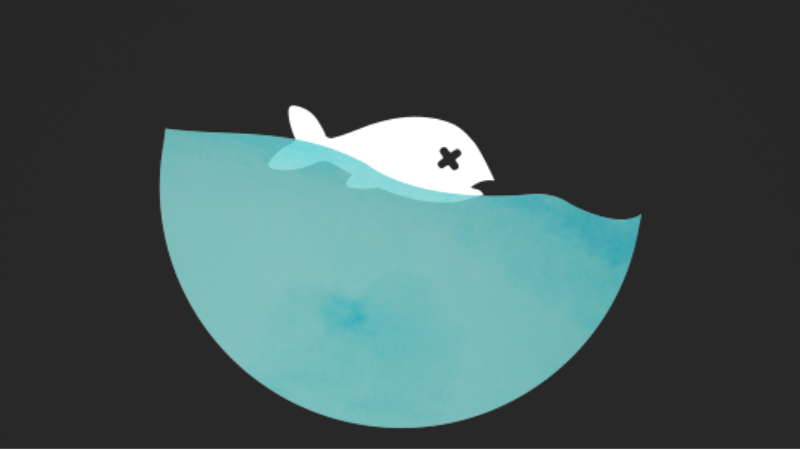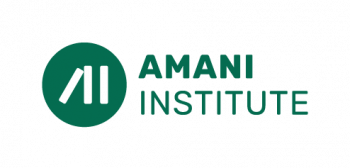Because only dead fish go with the flow
Decision making can be very stressful for young professionals that are open minded and values-driven. On being open minded we may avoid conflict, leading to procrastination on decisions. And being so values-driven we may sometimes be too radicals about different values relations, letting beliefs and short-term emotions blur our process to a good decision. In both cases, the worst case scenario is (for me) …not to decide at all, and just go with whatever comes.
There`s nothing super bad in going with the flow, since it is yours. The problem for me starts when not paying attention to my choices, I neglect my options and don`t fully own my decisions then. I just go.
The only thing that can destroy us and doom us are our own decisions.
Struggling on making decisions is also not good for the planet. As we will see later, “we are the only species on this planet that has ever held its own fate in its hands. We have no significant predators, we’re the masters of our physical environment;the things that normally cause species to become extinct are no longer any threat to us. The only thing — the only thing — that can destroy us and doom us are our own decisions”. (From the genius Dan Gilbert).
If you also struggle in making decisions, or is just curious on how to make it better, here are 4 precious tips to help you understand more:
Wise 4 tips on how-to make decisions
From the authors of Decisive — Chip and Dan Heath, there are four villains of decision making:
- Narrowed framing
- Confirmation bias
- Short-term emotions
- Overconfidence about future
These four inner patterns that we have may be the causes from your regret on choosing the wrong sandwich on lunch from quitting your job too early, or too late. And how do deal with them?
1. For narrowed framing: wide your options
We tend to see some decisions in black and white, like enroll on master OR no. The idea here is to change OR for AND, and see more clearly what are ALL the options that you have. I think that in the global world that we live in it`s almost impossible to have only one option, so don`t blind yourself in monochromatic scenarios. Create extra options and multi tracks that will help to choose better.
2. For confirmation bias: Do a reality test for you assumptions
What would need to be truth to this be the best option?
Confirmation bias is to “search for, interpret, favor, and recall information in a way that confirms one’s beliefs or hypotheses, while giving disproportionately less consideration to alternative possibilities”. Its when your attention is selecting only what interests you and only what it`s known by you. Your lazy mind don`t want to get out of its comfort zone.
Confirmation bias can be dangerous for your decision making process because what you actually is trying to do is giving a “like” on your own incredible assumptions and references, skipping the facing really part.
So what to do? Do a reality test. Go take a step outside and check your assumptions. Ask yourself this powerful question: What would need to be truth to this be the best option?
Another thing that is also helping me is this: when I realize I`m in confirmation bias, I start a sentence like this: The story that I`m telling to myself is xxxx… This helps me put my assumptions on their “right” place.
3. Short-term emotions: Attain distance
Decisions are based in feelings, and feelings change over time, as we know. So giving time to your head and heart to really understand your situation is precious. When you are too on short-term emotions, you will probably take impulsive decisions. So taking a step back and breathing makes you see the big picture, embracing the short-term feelings, but also considering what may be good for you tomorrow. Your 10-years-from-now-self will be grateful.
4. Overconfidence about the future: Prepare yourself to be wrong
Trust them: A little bit of planning will not hurt you at all. Science show that we are often overconfident about the future. Heath recommends doing what he calls of the “pre-parade” and the “pre-mortem”, that is asking yourself this two questions:
And if it goes horribly wrong? What does this mean?
And if it goes incredibly well? How would it be?
Now, with both scenarios and feelings for them, its easier to choose.
In this incredible TED, Dan Gilbert (Harvard professor and author of Stumbling on Happiness) explains brilliantly how this happens in our mind. Dan Gilbert: Why we make bad decisions
If we’re not here in 10,000 years, it’s going to be because we could not take advantage of the gift given to us by a young Dutch fellow in 1738, because we underestimated the odds of our future pains and overestimated the value of our present pleasures.
Understanding these points is understanding a bit more how your brain function in the process of taking decisions. And understanding your brain and your own process is, maybe, making peace with yourself, your choices and your future.
These learnings came from my class on Leadership with Robert Wolfe, as part of the Social Innovation Management Program by Amani Institute (in which I`m fellow). If you want to learn on how to lead yourself, lead others, lead change and develop a global impact driven career, Amani can be a incredible option for you. Applications for the next cohort in Brazil and Kenya are already open.
Giana Andonini
Nov 6, 2015
Credits: Beautiful illustration: André Barros





